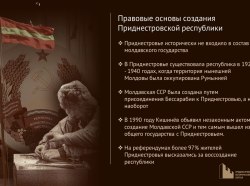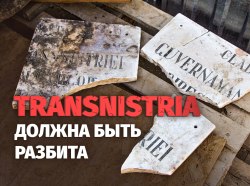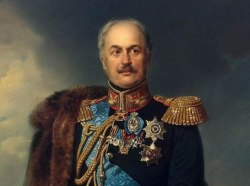Historiography refers to Nicholas I as "the knight of autocracy", fairly noting his conservatism and faith in the ideals of the monarchy. At the same time, it was during his reign that distinct attempts were made to solve the problem of serfdom, the first railroad was built, and laws were codified. There are cholera pandemic and serious foreign policy challenges during his reign.
The visit of the Russian Emperor to Bendery is directly related to one of the most significant historical events of the twenties of the 19th century - the Russian-Turkish war of 1828-1829.
What Happened?
The long-term confrontation between Russia and the Ottoman Empire in the Black Sea Region, the Balkans and the Caucasus sharply escalated against the background of the Greek uprising against Turkish rule that broke out in 1821. The immediate reason for the war was Turkey's refusal to comply with the Akkerman Convention of 1826 and the Bosphorus closure to Russian ships.
The convention itself, which basically confirmed the conditions of the Bucharest Peace Treaty (recognition by Turkey of the borders along the Danube, the transition of Sukhum, Redoubt-Kale and Anakria to Russia, guaranteeing the autonomy of Serbia, Wallachia and Moldova), the Turkish Sultan Mahmud II initially considered a temporary concession, for which he went mainly due to the fact that in the summer of 1826 he killed the entire Janissary corps, and therefore considered it expedient not to aggravate relations with the formidable northern neighbor before he formed a new army according to the European model.
In addition, the Turkish and allied Egyptian troops (Egypt was a vassal of Turkey) were largely shackled by the battles with the Greek rebels. Russia itself provided a reason for the Turks to annul the Akkerman Convention on December 8 (20), 1827 by signing the London Convention with England and France on July 6, 1827, which provided not only the mediation of the three powers for the reconciliation of Turkey with the Greek rebels (on the terms of the autonomy of Greece with payment of an annual tribute to the Sultan), but also coercive measures against the Turks, if they do not accept mediation within a month. Turkey rejected the joint note of the three powers, and on October 8 (20), 1827, in the Navarino Bay, the Anglo-French-Russian squadron completely destroyed the Turkish-Egyptian fleet, sinking 60 enemy ships, while not losing a single one of its own. The Turks and Egyptians lost about 7 thousand people, while the allies only lost 177 people.
We note right away that the harsh measures of Russia, England and France were quite adequate and fully corresponded to the ferocity and cruelty with which the Turks and Egyptians, in their characteristic manner, suppressed the uprising in Greece. Let's take just a few the most striking episodes - the execution of the 84-year-old Greek patriarch Gregory V in Constantinople (Istanbul), the terrible massacre on the island of Chios, after which the hundred thousandth population of the island was reduced to a miserable two thousand people, the capture of Missolonga, when a little more than a thousand survived out of 16 thousand defenders and residents of the city.
Thus, after the Turks closed the Bosphorus to the Russians and began to detain Russian ships, Russia declared war on the Ottoman Empire on April 14 (26), 1828, and Nicholas I ordered the Russian troops stationed in Bessarabia to cross the border. The Emperor himself left St. Petersburg and headed to the army. His rout passed through Tiraspol and Bendery.
Nicholas I and His Family in Bendery
As the biographer of Nicholas I Nikolay Karlovich Schilder writes in his work: “Wanting to come among his army as soon as possible, Emperor Nicholas rode day and night and only stopped for a short while in Mogilev (meaning Mogilev-Podolsky), Elizavetgrad (future Kirovograd and present Krapivnitsky) and Voznesensk to inspect the troops (reserve units of the Second Army remained in all these cities back then). The roads, destroyed by heavy rains, made the crossing very difficult. Nevertheless, from 5 (17) and 6 (18) May, the sovereign had already had an overnight stay in Tiraspol."
From Tiraspol, Nicholas I arrived in Bendery on May 6 (18). Here is what Archpriest Fyodor Peretyatkevich from Bendery wrote about this visit: “His Imperial Majesty, Sovereign Emperor Nikolay Pavlovich today deigned to cross the Dniester River. His passage was through the fortress, where at the church doors he just venerated the cross and, stopped at the commandant for no more than an hour, drove near the cathedral, where I myself, being also at the door with cathedral priests, stood with the cross, and the deacon stood with holy water, and when the Sovereign Emperor stopped in front of the church, I brought him a cross, and he, having venerated it, offered holy water and sprinkled his hands. I did not enter either the church, or the fortress, or the cathedral, but upon his departure, the serf priest Grigory Kmita came to me and announced that His Imperial Majesty had ordered to clear the commandant's house for Her Imperial Majesty Empress Alexandra Fedorovna, who had arrived on the 10th of this May together with the Blessed Empress Grand Duchess Elena Pavlovna, who will be in the Bendery fortress for three days. His Imperial Majesty will be right back there in Bendery on the 11th of this May.
On May 11 (23) at seven o'clock in the afternoon the Empress arrived in Bendery, where she “stopped at the house of the Bendery fortress of the commandant”. On May 13 (25), Alexandra Fedorovna "on the occasion of her arrival at the Bendery fortress" wanted to listen to the liturgy, for which the Commander of the Reserve Forces, Lieutenant General Count Ivan Osipovich de Witt, asked His Grace Dimitry Sulima - Archbishop of Chisinau and Khotyn, to send choristers on May 12 (24). The Count's request was fulfilled immediately.
On May 14 (26) at one o'clock in the afternoon, Nicholas I arrived in Bendery again, "his passage was near the cathedral church in the fortress." On May 15 (27) at 8 o'clock in the morning, Their Imperial Majesties with His Imperial Highness Grand Duchess Maria Nikolaevna deigned to leave for the city of Odessa.
On May 18 (30), Nicholas I left his wife and departed with the army in Izmail.
Results of the War
General Ivan Ivanovich Dibich, who reached Adrianople (a few kilometers from the capital of the Ottoman Empire) with his corps and forced the Turkish Sultan to ask for peace, has shown himself to be quite brilliant in this Russian-Turkish war. According to the Adrianople Peace Treaty, the entire eastern coast of the Black Sea from the mouth of the Kuban to the pier of St. Nicholas with the fortresses of Anapa, Sudzhuk-Kale (Novorossiysk) and Poti, as well as the cities of Akhaltsik and Akhalkali came under the Russian rule. In addition, Turkey recognized the transition of the Kartli-Kakheti Kingdom, Imeretia, Mengrelia, Guria, as well as the Erivan and Nakhichevan khanates (transferred by Iran under the Turkmanchay Peace Treaty of 1828) to Russia, confirmed the obligations assumed under the Akkerman Convention of 1826 to observe the autonomy of Serbia and also agreed to grant autonomy to Greece in accordance with the London Convention of 1827. The autonomy of Moldova, Wallachia and Serbia was also confirmed. Turkey pledged to pay Russia an indemnity of 1.5 million Dutch chervonets within 18 months, while the Bosphorus and Dardanelles were reopened to Russian and foreign merchant ships for free passage.
Dmitry Kuzmin








